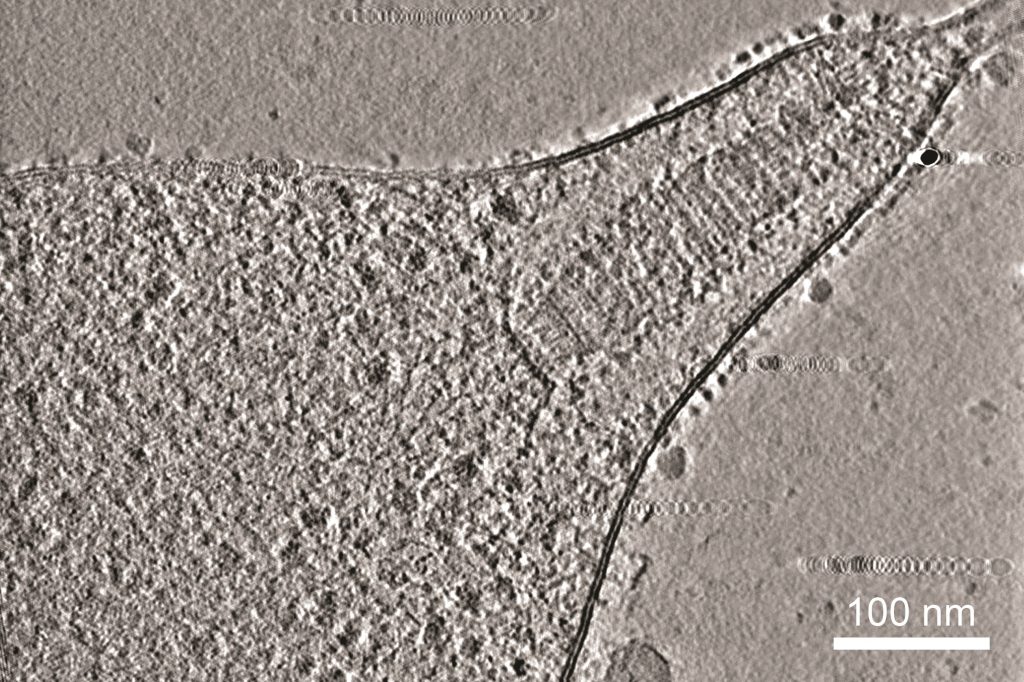Mycoplasma pneumoniae, a genome-reduced pathogenic bacterium, is responsible for various respiratory diseases, yet the molecular mechanisms of its pathogenesis, particularly at the cell membrane, are not well understood.
The goal of this study is to characterise the membrane proteome of Mycoplasma pneumoniae to uncover new insights into its infection mechanisms by developing an integrated approach combining systems and structural biology. Utilising advanced technologies such as cellular cryo-electron tomography and mass spectrometry, alongside deep-learning for structure prediction, this research aims to provide a comprehensive description of Mycoplasma pneumoniae‘s membrane proteins and their roles in host cell adhesion and infection.
Julia Mahamid (EMBL), Christian Löw (EMBL), Juri Rappsilber (TU Berlin), James Sáenz (TU Dresden)
